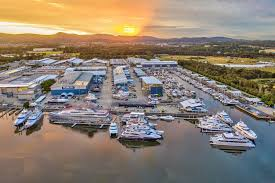Now Reading: “Can Expo City Dubai Become the Middle East’s New Silicon Valley?”
-
01
“Can Expo City Dubai Become the Middle East’s New Silicon Valley?”
“Can Expo City Dubai Become the Middle East’s New Silicon Valley?”

Table of Contents
In recent years, Dubai has made headlines for its bold vision, futuristic infrastructure, and leadership in innovation. But now, a new question is being asked by investors, tech entrepreneurs, and global business leaders: Can Expo City Dubai become the Silicon Valley of the Middle East?
What Is Expo City Dubai?

Expo City Dubai is built on the legacy site of Expo 2020, a global mega-event that attracted millions of visitors from around the world. Unlike traditional expo sites that are dismantled after such events, Dubai has transformed this 4.38 square kilometers area into a permanent smart city dedicated to innovation, technology, and sustainability.
Officially opened in October 2022, Expo City Dubai aims to be a global business hub where future industries like Artificial Intelligence (AI), blockchain, green energy, and advanced manufacturing can flourish. The city is designed with ultra-fast 5G networks, autonomous transportation systems, and cutting-edge research facilities — making it highly attractive for tech firms.
Why Do People Call It the ‘Silicon Valley of the Middle East’?

Silicon Valley in California is famous for being home to giants like Apple, Google, Facebook, and countless startups that have shaped the digital age. Similarly, Dubai’s ambition is to become the region’s top technology hub, offering unmatched business advantages such as:
- Zero income tax for companies
- 100% foreign ownership
- Access to highly skilled international talent
- A strategic location connecting East and West
Dubai’s government is also investing billions into tech-friendly policies and infrastructure to lure companies in fintech, biotechnology, space technology, and clean energy — just as Silicon Valley once did.
The Growing Startup Scene
Dubai has already seen a boom in tech startups in recent years. Companies like Careem (acquired by Uber) and Souq.com (acquired by Amazon) were born in Dubai. Expo City is expected to accelerate this trend even further.
To encourage this, the government has launched initiatives like:
- “Dubai Future District Fund” — a $272 million fund to support startups
- “Dubai Internet City” and “Dubai Silicon Oasis” — tech-friendly zones providing office space and funding
- Golden Visa Program — long-term residency options for top global tech talent and entrepreneurs
These efforts are positioning Dubai as a serious competitor to global tech hotspots.
Sustainability and Smart Living
One unique selling point for Expo City is its sustainability focus. While Silicon Valley struggles with environmental issues and housing crises, Expo City is designed to be carbon-neutral, powered by renewable energy and smart water recycling systems.
Green parks, energy-efficient buildings, and autonomous electric shuttles will offer a futuristic urban lifestyle — perfect for attracting young talent who care about environmentally conscious living.
A Strategic Location
Dubai is only an 8-hour flight from two-thirds of the world’s population. This makes Expo City an ideal headquarters for tech firms that want access to both Eastern and Western markets. Its proximity to Africa, Europe, and Asia allows companies to tap into fast-growing economies, unlike Silicon Valley, which is far from these emerging regions.
Challenges on the Road Ahead
Of course, no city becomes Silicon Valley overnight.
Dubai must overcome challenges such as:
- Local talent development — Most tech experts are still foreign hires; building local knowledge will take time.
- Freedom of speech and open internet — Silicon Valley thrived on the free exchange of ideas; Dubai’s regulations may need to be more flexible.
- Competition from Riyadh and Abu Dhabi — Other Middle Eastern cities are also trying to become tech hubs.
But with billions in funding, clear government vision, and infrastructure unmatched in the region, Expo City has a realistic shot at becoming the tech capital of the Middle East.
Global Tech Giants Are Already Moving In
Big names are already setting up shop in Expo City:
- Siemens runs a digital industries hub here.
- DP World is using the city as a base for smart logistics technology.
- Dubai Future Foundation supports futuristic projects like flying taxis and hyperloop transportation.
Reports also suggest that Microsoft, IBM, and Google are considering expanding operations in the area — signaling growing confidence in Dubai’s vision.
Is Expo City Dubai the Future Silicon Valley?
The answer may be “yes” — but with a Middle Eastern twist.
Rather than copying Silicon Valley, Dubai seems to be building its own version: a high-tech, sustainable, smart city designed for a global audience — not just Americans. With a unique location, tax benefits, and government support, Expo City Dubai could become the go-to place for the next generation of tech unicorns.
But time will tell if it can truly match the innovation culture, open ecosystem, and investor confidence that made Silicon Valley legendary.
For now, one thing is clear: The world is watching Expo City Dubai.
Read More:- Shobha Realty Launches Its Most Luxurious Project Yet—Full Details Inside 2025





















